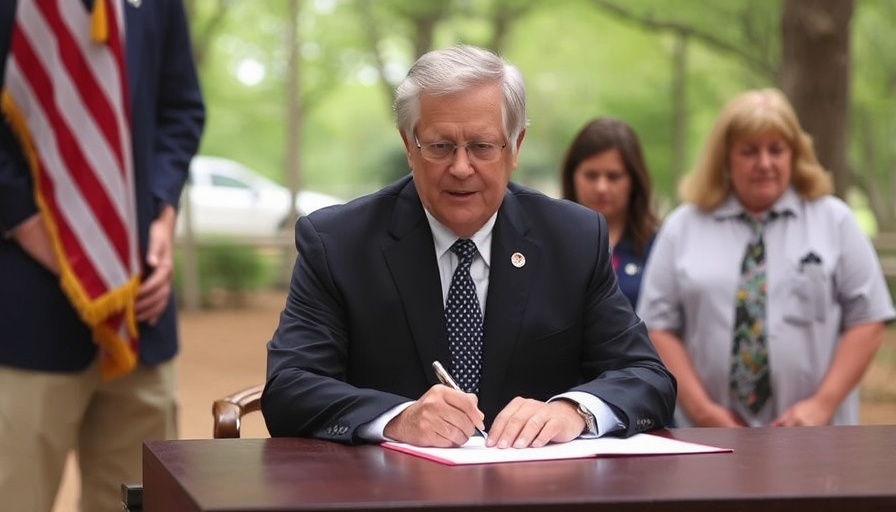
Tragic Loss Inspires Change in Camp Safety Regulations
The heartfelt stories of families devastated by the tragic flooding at Camp Mystic led to significant legislative actions in Texas aimed at preventing similar tragedies in the future. In an emotional session this September, Texas Governor Greg Abbott signed a series of crucial safety bills into law, addressing the absence of proper measures that left many campers vulnerable to nature's fury.
Understanding the Legislative Changes
This new legislation predominantly focuses on two main aspects: banning cabins located in flood-prone areas, and mandating that camp operators develop comprehensive safety plans. These provisions serve to protect children attending summer camps from the kind of calamity that took so many lives last July. Following the death of his daughter Lila and others amid rising waters, Blake Bonner emerged as a fierce advocate for these necessary changes. His mission is clear: to ensure that no parent has to endure the heartache he experiences every day.
Rationale Behind Camp Safety Bills
The urgency of these laws was underscored during public hearings where families took center stage, sharing their stories and underscoring the preventable nature of the tragedies. Abbott's remarks following the bill signing highlighted the collective grief and the fierce determination amongst the families to drive legislative change. With tools provided by the state government, like allocating $240 million from the rainy day fund for disaster relief, Texas is moving in a direction that prioritizes youth safety.
Local Community Insights and Implications
These changes are more than legislative footnotes; they represent a profound shift in how communities perceive camp safety, particularly in regions prone to natural disasters. Various public forums across Dallas have hosted discussions on how these laws will impact local camps and families, with community leaders advocating for heightened awareness and readiness regarding weather-related emergencies.
Expected Impacts and Next Steps
As the summer camp season approaches, the implementation of these new laws will be scrutinized closely. Training programs to prepare camp workers for emergencies are now essential, as are plans for equipping camps with emergency warning systems that are operational and reliable. Parents can feel more assured about their children’s safety as camps implement these new protocols. Effective training and prompt responses to environmental alerts will help foster a safer environment for the youth.
Broader Implications on Public Safety and Emergency Preparedness
This legal framework is likely to serve as a model for other states grappling with similar challenges, particularly those prone to flooding or severe weather events. The Texas legislation emphasizes the necessity of proactive measures in public safety and camp management. With increased awareness on social media and through local news sources about camp safety, families are urged to inquire about safety certifications and emergency protocols at the camps they consider for their children.
Action Steps for Parents and Community Members
As these profound changes unfold, it's crucial for parents and community members to remain engaged. Knowledge about new safety protocols can empower families, and proactive inquiries can encourage camps to uphold these higher standards. Attending local meetings about public safety can provide deeper insights and foster community solidarity.
Closure for a Grieving Community
The new legislation serves not just as a set of laws but as a lasting tribute to those who lost their lives. These measures encapsulate a community's awakening to the importance of child safety and a promise that Lila and her peers did not die in vain.
 Add Element
Add Element  Add Row
Add Row 



Write A Comment